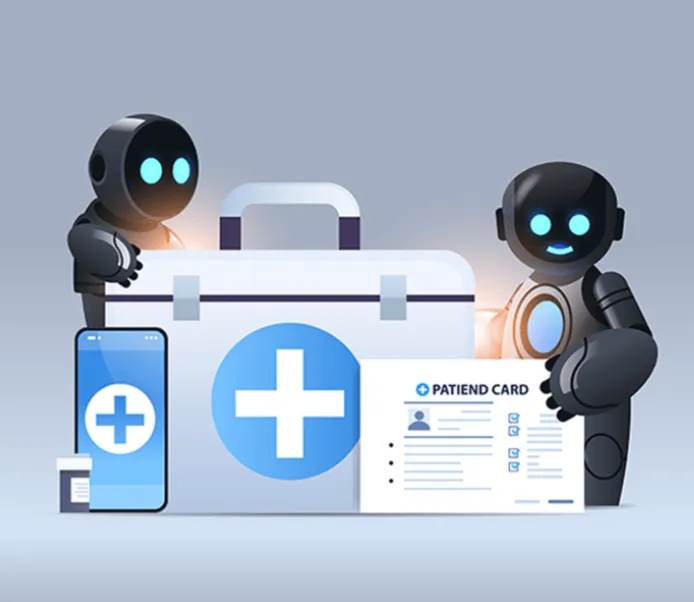The healthcare industry is undergoing a major shift as technology continues to shape how services are delivered. Among the most impactful innovations is the use of artificial intelligence (AI) chatbots, which are rapidly becoming essential tools for patient support. These digital assistants are helping healthcare providers meet growing demands while compensating for the shortage of medical staff. By delivering quick, reliable, and personalized assistance, chatbots are redefining the way patients access care and information.
The Rise of AI in Healthcare
The adoption of AI in healthcare has accelerated in recent years, fueled by the need to improve efficiency and patient outcomes. Chatbots are at the forefront of this movement, using natural language processing to understand patient questions and provide real-time responses. Their ability to handle both administrative and medical-related queries makes them a cornerstone of modern healthcare customer service.
The Many Roles of AI Chatbots
Healthcare chatbots serve multiple functions that benefit both patients and providers. They can book appointments, provide answers to frequently asked questions, guide patients through symptom checks, and send medication reminders. This wide range of applications not only saves time but also ensures patients receive accurate and timely support.
Why Chatbots Improve the Patient Experience
Always Available
Unlike traditional healthcare services limited by office hours, AI chatbots are accessible 24/7. Patients can receive immediate answers to their concerns without waiting for callbacks or being placed on hold. This constant availability not only reduces stress but also creates a more positive experience for patients.
Accurate Information
With access to medical databases and integrated healthcare systems, chatbots deliver trustworthy, evidence-based information. This consistency helps build trust between patients and providers while reducing the risk of misinformation.
Personalized Support
By analyzing patient records, past interactions, and preferences, chatbots can deliver tailored advice and reminders. Whether it’s a medication notification or a follow-up care suggestion, this personalized approach enhances patient engagement and adherence to treatment plans.
How Chatbots Benefit Healthcare Providers
AI chatbots don’t just improve patient services—they also ease the workload on healthcare professionals. Automating routine tasks such as scheduling, prescription requests, and handling common inquiries frees up medical staff to focus on complex cases that require human expertise. During peak times, such as seasonal outbreaks, chatbots can manage large volumes of patient requests simultaneously, reducing bottlenecks and improving operational efficiency.
In addition, they extend healthcare access to people in remote or underserved areas who may struggle to reach a provider. By serving as the first point of contact, chatbots promote health equity and ensure timely assistance regardless of location.
Cost savings are another advantage. Automating repetitive processes lowers operational expenses, allowing organizations to allocate resources toward improving patient care and investing in advanced treatments.
Challenges and Ethical Considerations
Despite their benefits, chatbot implementation raises concerns. Protecting sensitive patient data is a top priority, making strict security measures and transparency essential. Patients must be assured that their personal information is safe and handled responsibly.
Accuracy is another key issue. Chatbots rely on up-to-date medical guidelines, and outdated or incorrect data could jeopardize patient safety. Regular monitoring and updates are vital to maintain reliability.
Finally, while chatbots offer convenience, they cannot replace the empathy and expertise of human professionals. Finding the right balance between automation and human interaction ensures patients receive both efficient support and compassionate care.
Looking Ahead
The future of healthcare chatbots is promising. Advances in AI may soon enable them to perform more complex diagnostic tasks, integrate more deeply with telemedicine services, and expand into areas such as mental health support. These developments could further improve patient satisfaction and accessibility, cementing chatbots as a permanent fixture in healthcare.
Conclusion
AI chatbots are reshaping healthcare by offering round-the-clock, personalized, and cost-effective support. They help patients access reliable information, reduce the administrative load on providers, and extend care to underserved populations. While challenges around privacy, accuracy, and human interaction remain, the continued evolution of AI ensures that chatbots will play an increasingly important role in the future of healthcare.
